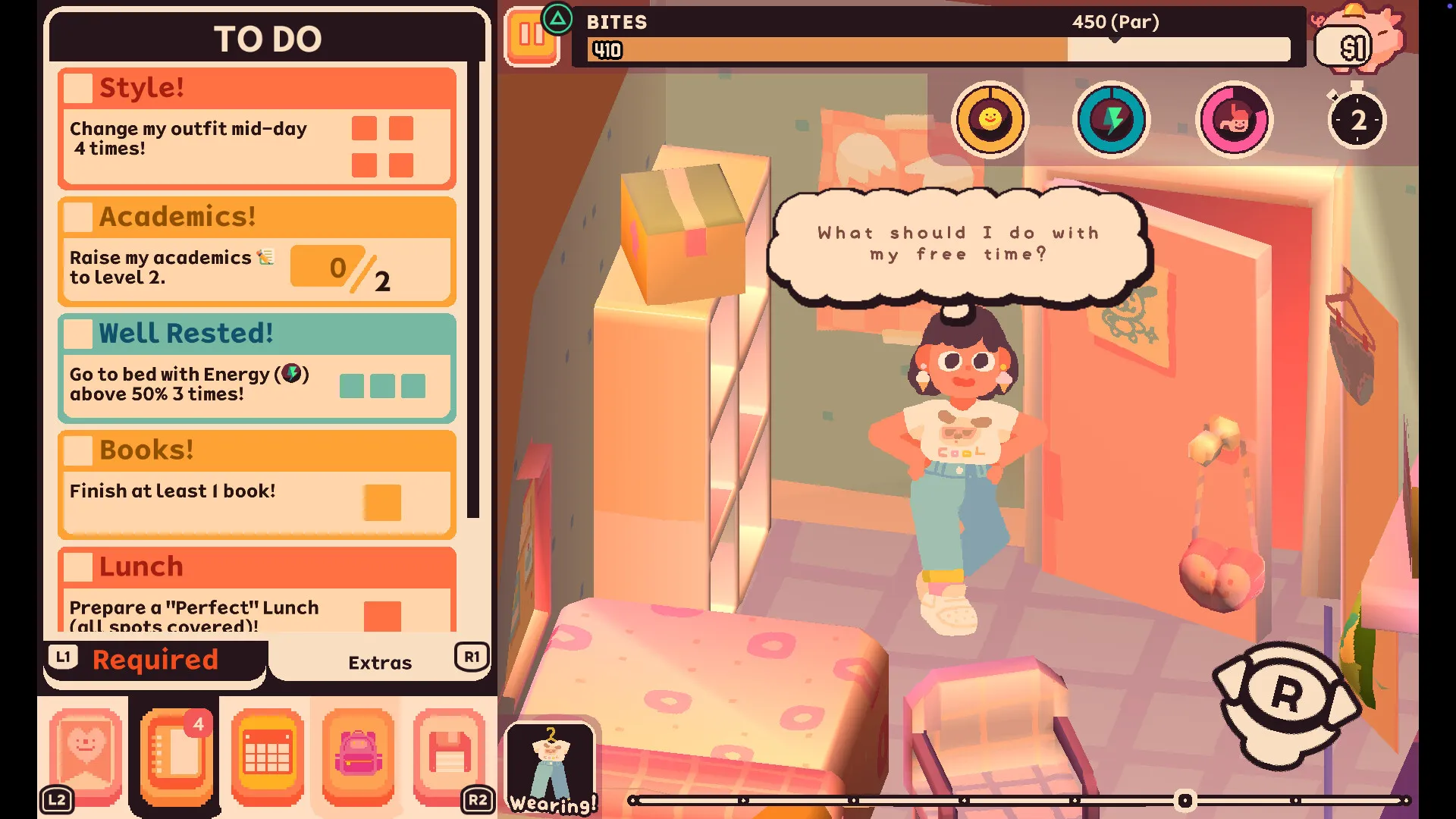

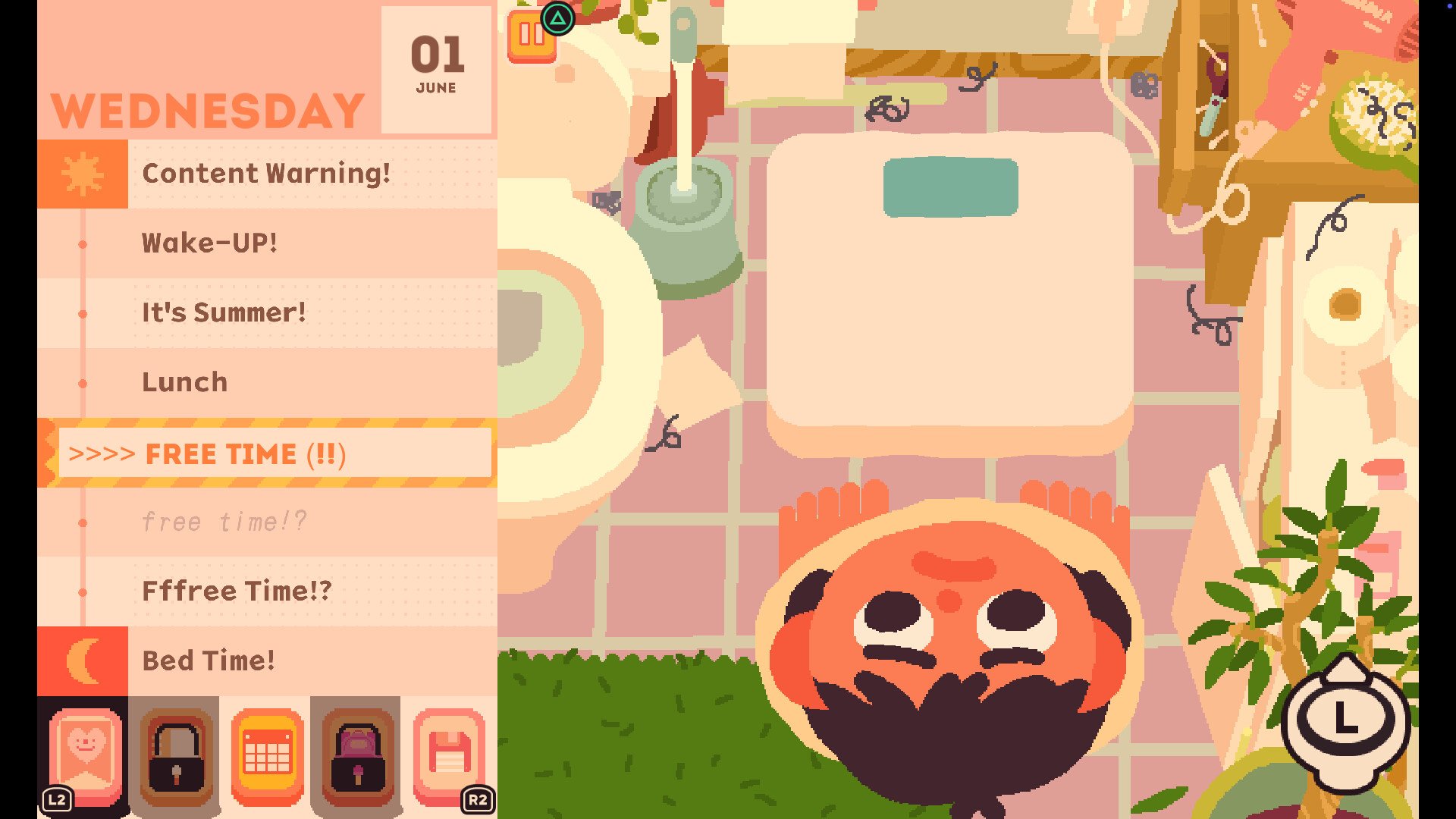
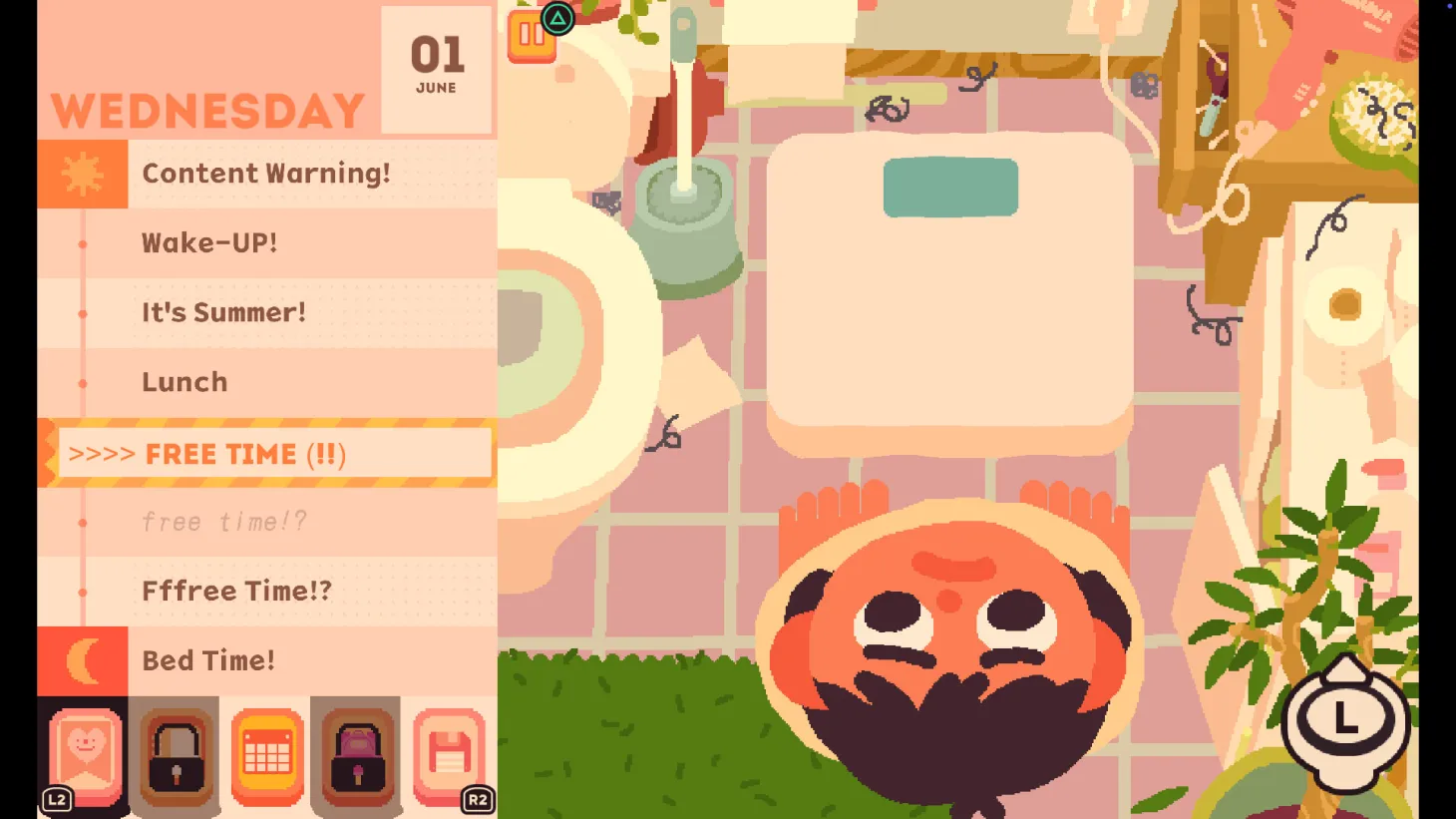
Eating disorders are an incredibly sensitive topic, so I was wary when I learned about Consume Me, a game that turns a teenage girl's insecurities into minigames and resource management. After completing the story, however, I'm so glad it exists. Consume Me is a touching, hilarious, occasionally visceral experience told from a perspective video games don't touch on as often as they should. Its meta commentary on the dangers of using game systems to measure complicated, real-life issues is poignant and unique. Its ending is disappointing, but it's rare to play a game that feels so personal to its creators, and it makes Consume Me something special.

The game opens with an interesting content warning, not just pointing out the story's potentially troubling subject matter, but clarifying that Jenny's dieting behavior – the primary gameplay mechanic – is not something to be replicated. I have never played something like this: It's a game about how gamifying real life isn't always a good idea.
Jenny, based on the game's creator with the same name, is a high schooler about to start her senior year. After a comment from her mother about Jenny's weight, Jenny decides to start dieting, meticulously tracking her food intake and exercise habits. At the same time, she's got to manage other aspects of her life: chores, money, and homework, to name a few. Each activity is represented as a microgame, similar to something you'd find in WarioWare, where you perform simple, sometimes challenging actions in an expressive art style. For the most part, they're charming and fun, and even the ones I was less fond of are over quickly. Consume Me comes across as a narrative-first experience, but I genuinely looked forward to booting it back up and managing my toxic behaviors.
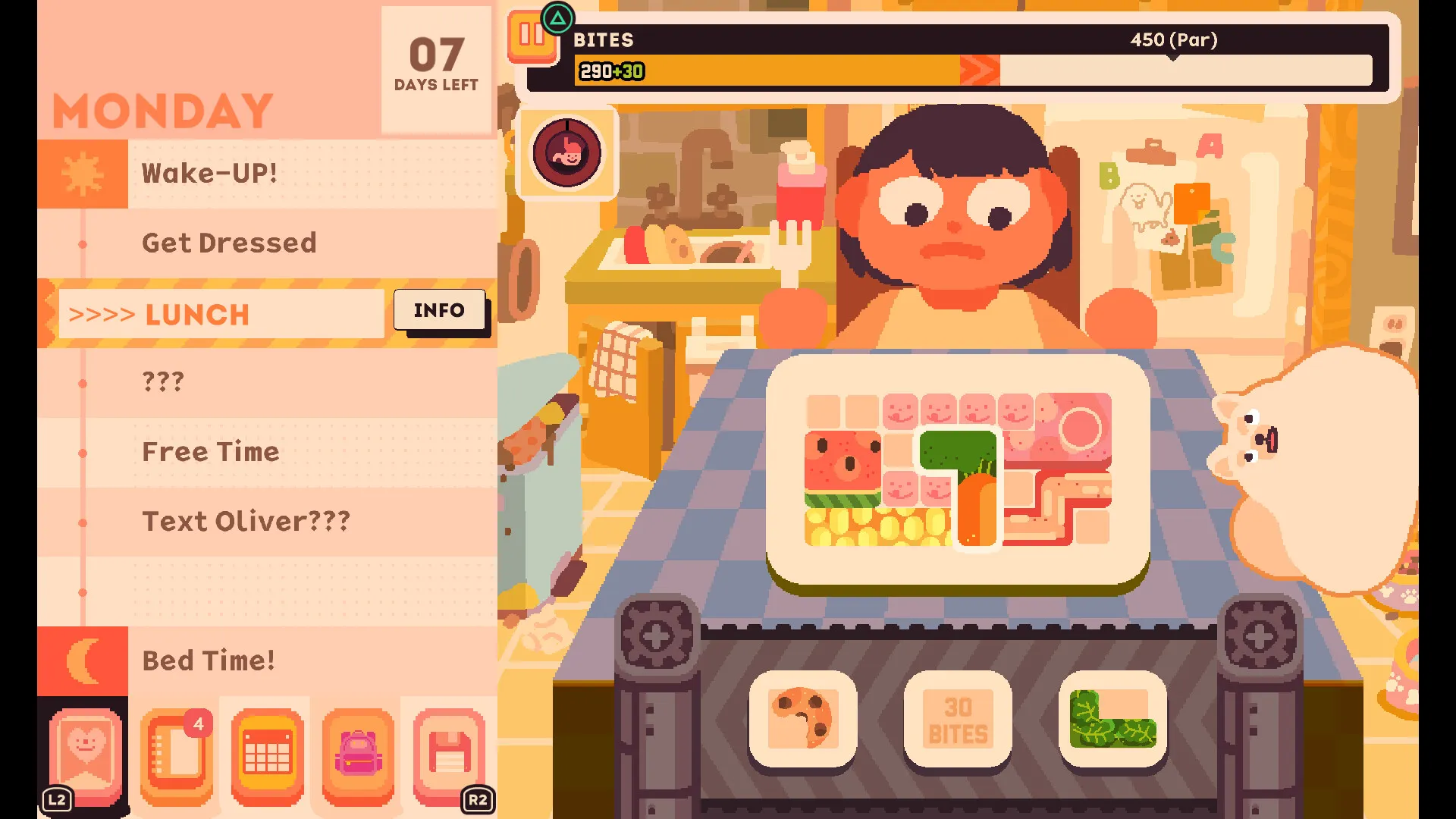
The game you'll play the most often has you build Jenny's lunch plate. Foods are represented as Tetris-like pieces you have to fit onto a grid, filling in the hunger squares while attempting to avoid the empty ones. Each food also costs a different number of bites (the game's abstract version of calories), so you have to balance the act of fitting pieces in the grid with avoiding unhealthy foods to keep your bite count low. Go over the limit, and you'll have to exercise later, wasting precious time you could use for other activities. Mismanage your puzzle pieces, and you'll fail to fill all the necessary squares, causing Jenny’s hunger meter to take a hit. Despite the upsetting goal, I enjoy this puzzle, and didn't mind playing it every in-game day.
As you get later in the story, it's incredibly easy to see how someone like Jenny can fall into harmful spirals of behavior. If I eat a light lunch – an alternate meal option I unlock that costs fewer bites – my energy level takes a hit, but if I drink an energy drink, I replenish it. However, it turns out that over-reliance on caffeine causes Jenny to develop headaches over the day, and I can't get rid of them unless I do something that raises her mood. The easiest way to do this is by eating a bag of chips, which puts me over my bite goal, bringing me back to the problem I was trying to avoid in the first place.
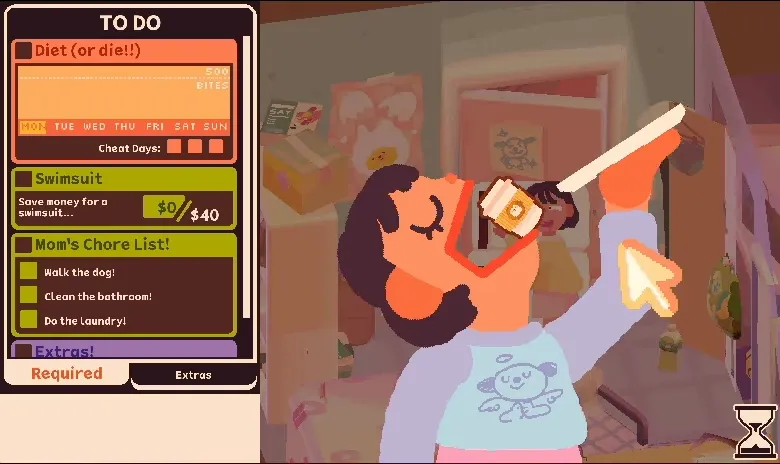
All I wanted to do was eat a little bit less, but it started an unavoidable chain of events that only makes Jenny's problems worse. It's a genius trap that I didn't realize I'd fallen for until it was too late, much like real life. It's a form of artistic expression and education that can only be communicated through a video game.
The art and animation oozes with personality, its pixels giving off a hand-drawn aesthetic to characters' hyper-expressive faces. The player moves Jenny through cutscenes with swipes of the mouse or joystick, but you never really know what you're about to make her do, and it's a fun surprise to watch how she nervously picks up a dollar off the sidewalk or refuses to get out of bed. The subject matter might imply a dour visual tone, but Consume Me is anything but. It helps to offset the very real stress I have trying to balance Jenny's life while also representing the ways that eating disorders can appear invisible to the outside world.
Moment-to-moment dialogue writing is also sharp, and Jenny is a memorable, endearing protagonist who's easy to root for. I had no problem seeing things from her perspective, and while I started as an outside observer, I quickly found myself invested enough to get nervous about finishing my homework and earnestly hoping a boy would like me back.
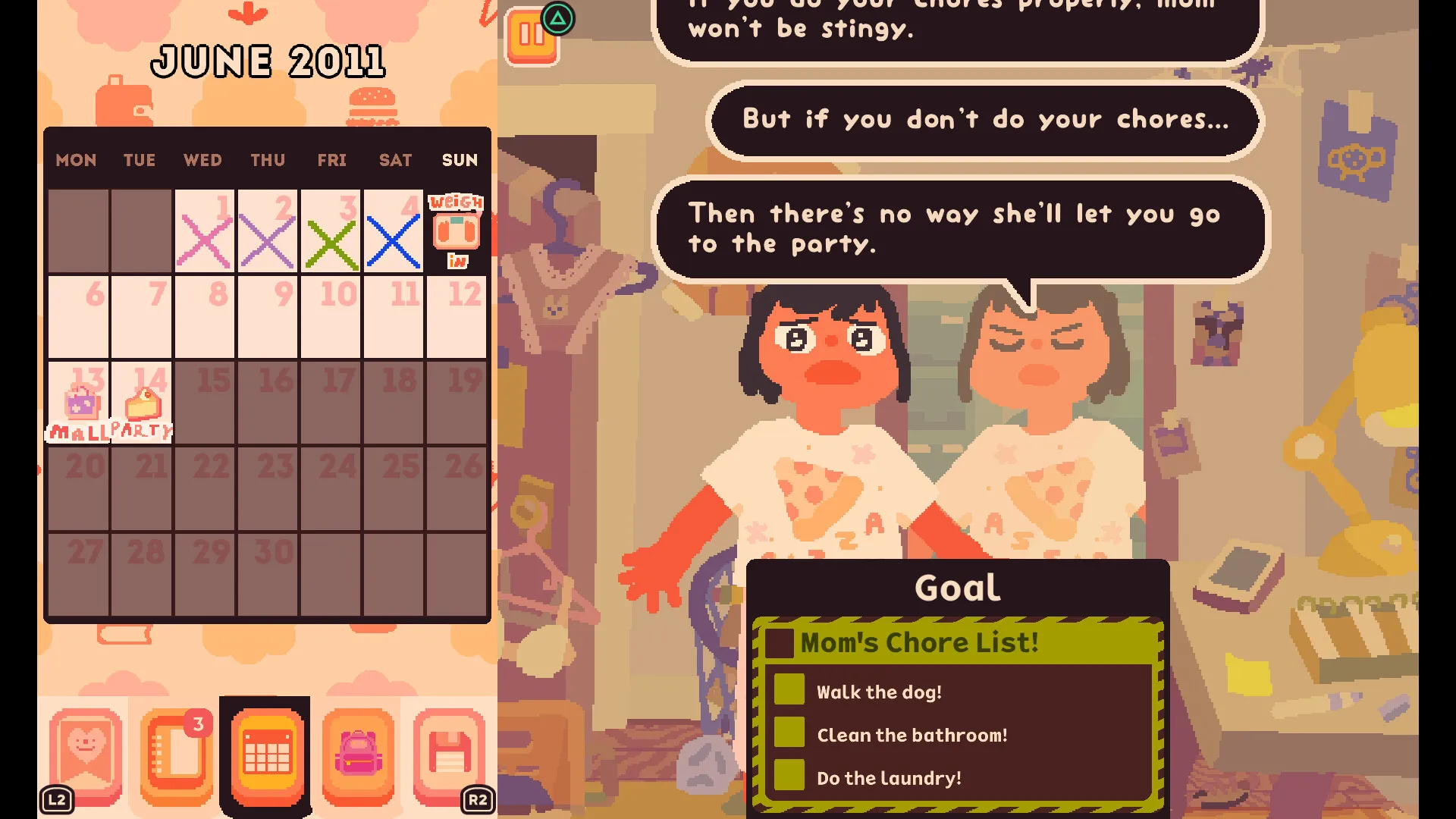
Despite loving the game's characters and early hours, its last chapter falls flat for a few reasons. First, religion is introduced as a comfort for Jenny late in the game (complete with a musical prayer sequence). Conceptually, I have no problem with this, but it comes out of nowhere and feels out of place. It's not mentioned much beforehand, and it becomes irrelevant by the story's conclusion. Jenny can pray once a day to remove mental blocks that keep her from studying, but it also slightly fills her mood, energy, and hunger bars. Improving her mood makes perfect sense, but it's the latter meters that feel at odds with Consume Me's themes. Jenny's biggest flaw is convincing herself that with enough mental effort, she can force her body to achieve unhealthy levels of productivity, whether that's staying up late or starving herself, and it's inconsistent that praying would exist as a consequence-free energy booster or replacement for eating.
When Consume Me's story does ultimately end in the disaster its content warning foreshadows, religion doesn't seem to be a solution, and despite saving Jenny in a later chapter, it's swept aside unceremoniously. It's hard to end biographical narratives, especially when the subject is still alive, because real-world events that make the compelling premise to a story rarely resolve cleanly. Still, the story's primary sources of drama sort of slip away, with Jenny ultimately outgrowing them rather than confronting them.
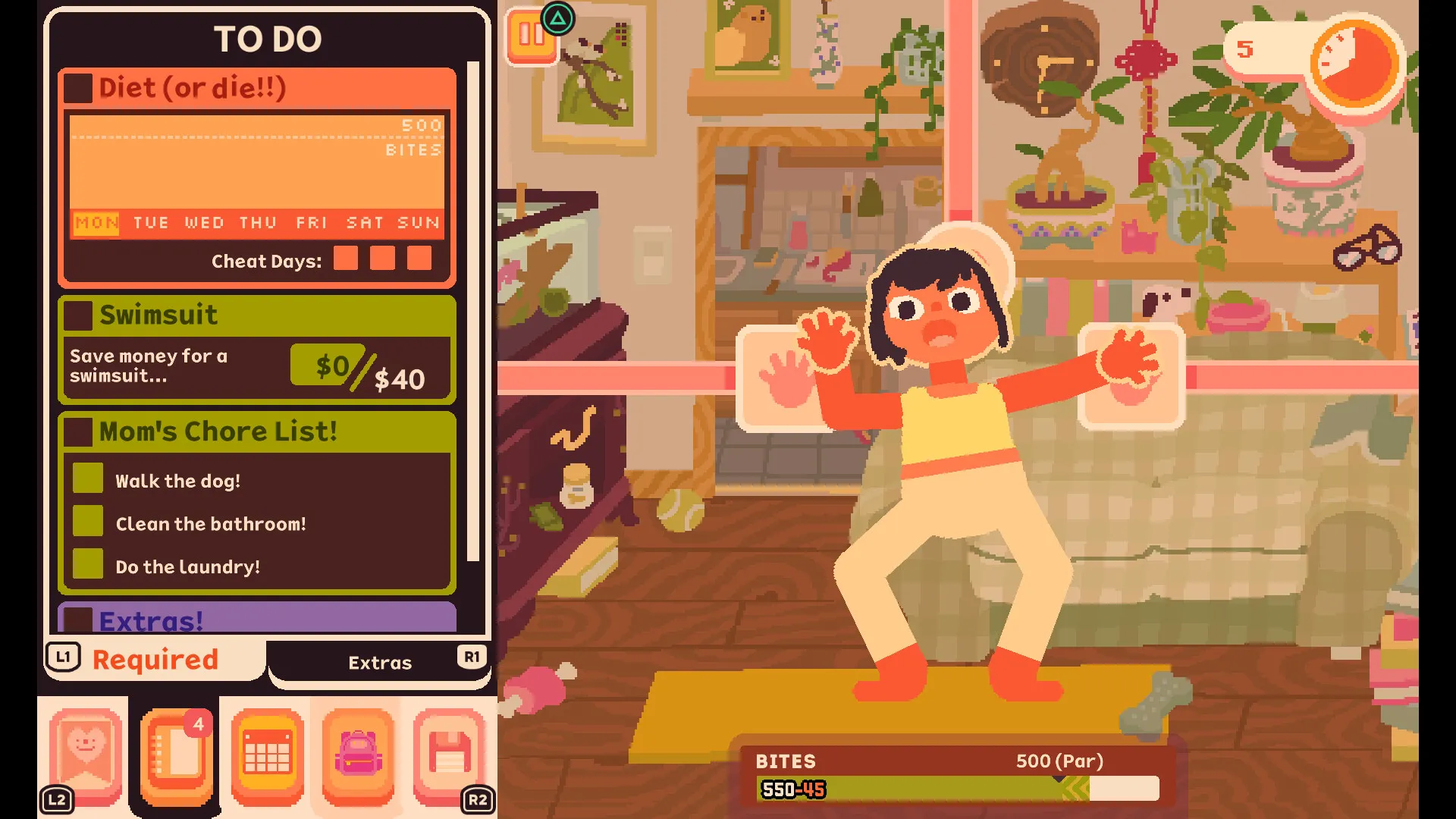
It doesn't help that we play as Jenny on her spiral to rock bottom, but we're stuck watching a slightly interactive montage as she lifts herself out of it. The whole game leads up to her inevitable crash, where she learns how destructive her behaviors are; however, once it finally happens, the game is essentially over. It's like Mario learns his princess is in another castle, but instead of leading to a boss fight with Bowser, we just watch him beat Bowser in the end credits. The story is still there, but as a player, I'm forced to end on a loss.
Gamifying your food habits is, indeed, an awful idea, and Consume Me lays it out in a manner I found deeply compelling and entertaining. Even if you ignore the content warning, its message is clear from its opening moments. If its ending hadn't stumbled, it might've been one of my all-time favorites, but there's still a lot to love here despite that underwhelming conclusion. Consume Me is teeming with creativity and personality, and for that, it's earned a special place in my heart.